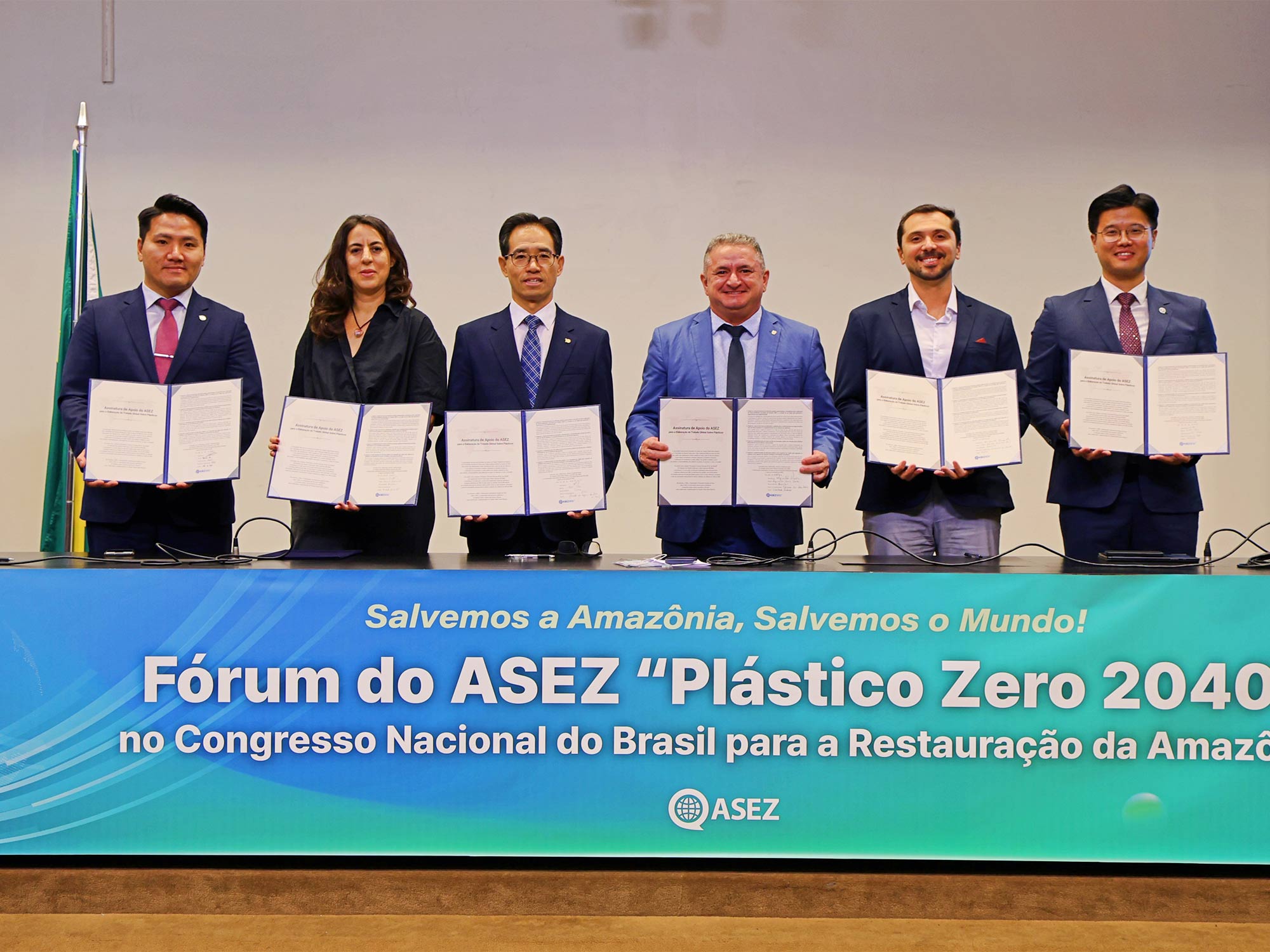With the shared goals of restoring the Amazon and reducing plastic use, ASEZ held the “Zero Plastic 2040” forum at the Brazilian National Congress on October 22, 2025.
The event took place in the main building of Congress and was attended by Federal Deputy Reginaldo Veras, Federal Deputy Nilto Tatto (Vice Chair of the Congressional Environmental Committee), Mariana Nascimento, Environmental Analyst from the Ministry of the Environment, Andrea Rodrigues, Technical Director of the Urban Environmental Management Company of the Federal District, professors from the University of Brasília, legislative staff, and university students. In addition, youth delegations from nine Latin American countries participated both online and offline, making it a meaningful gathering of about 350 participants.
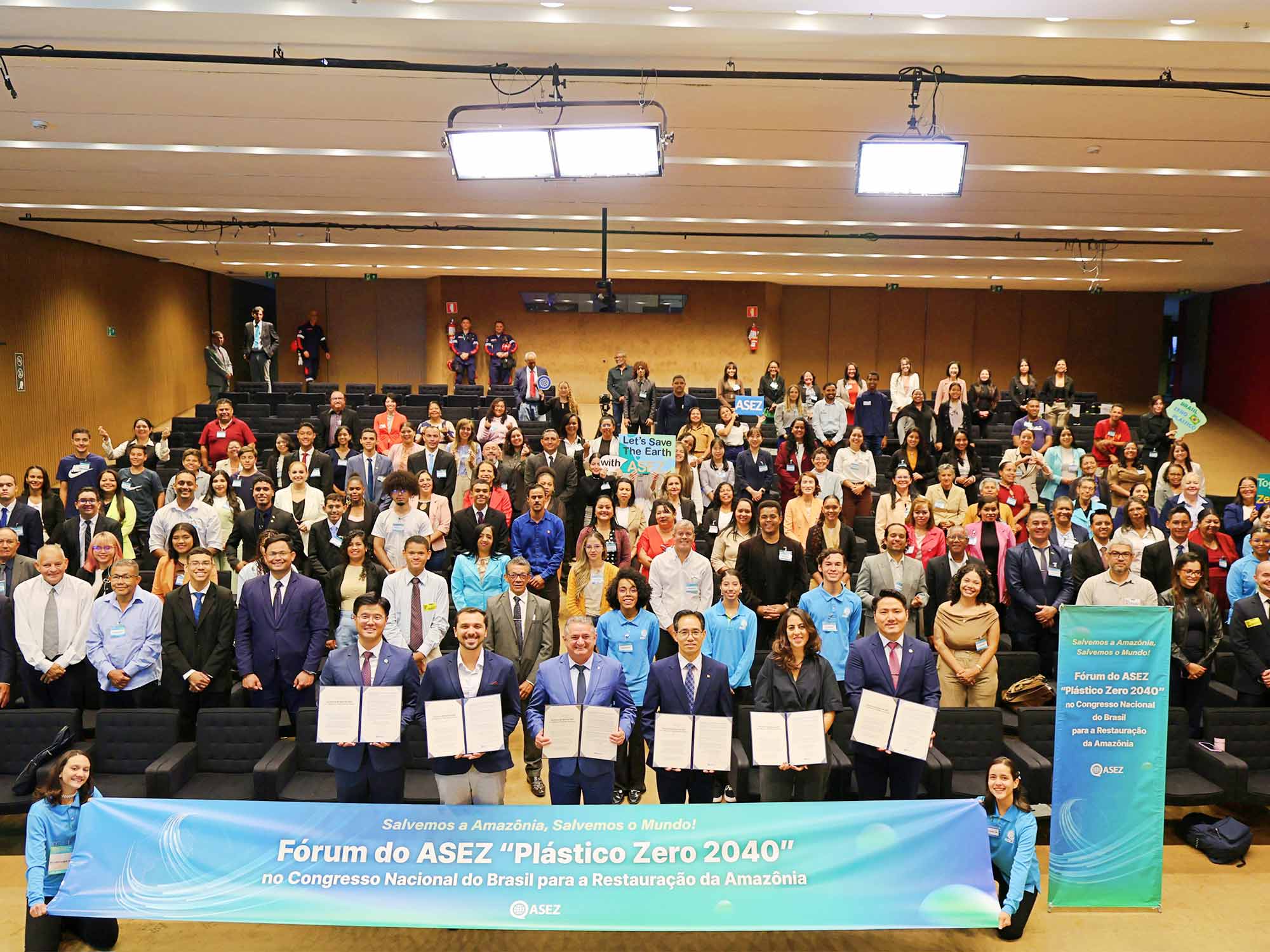
The forum opened with a vocal ensemble titled “Into the Forest.” The stage, which conveyed the preciousness of the forest, set the tone for the event. Following the performance, members of Congress held a signing ceremony at the front of the stage to express their official support for ASEZ’s activities aimed at reducing plastic by endorsing the “Zero Plastic 2040” initiative.
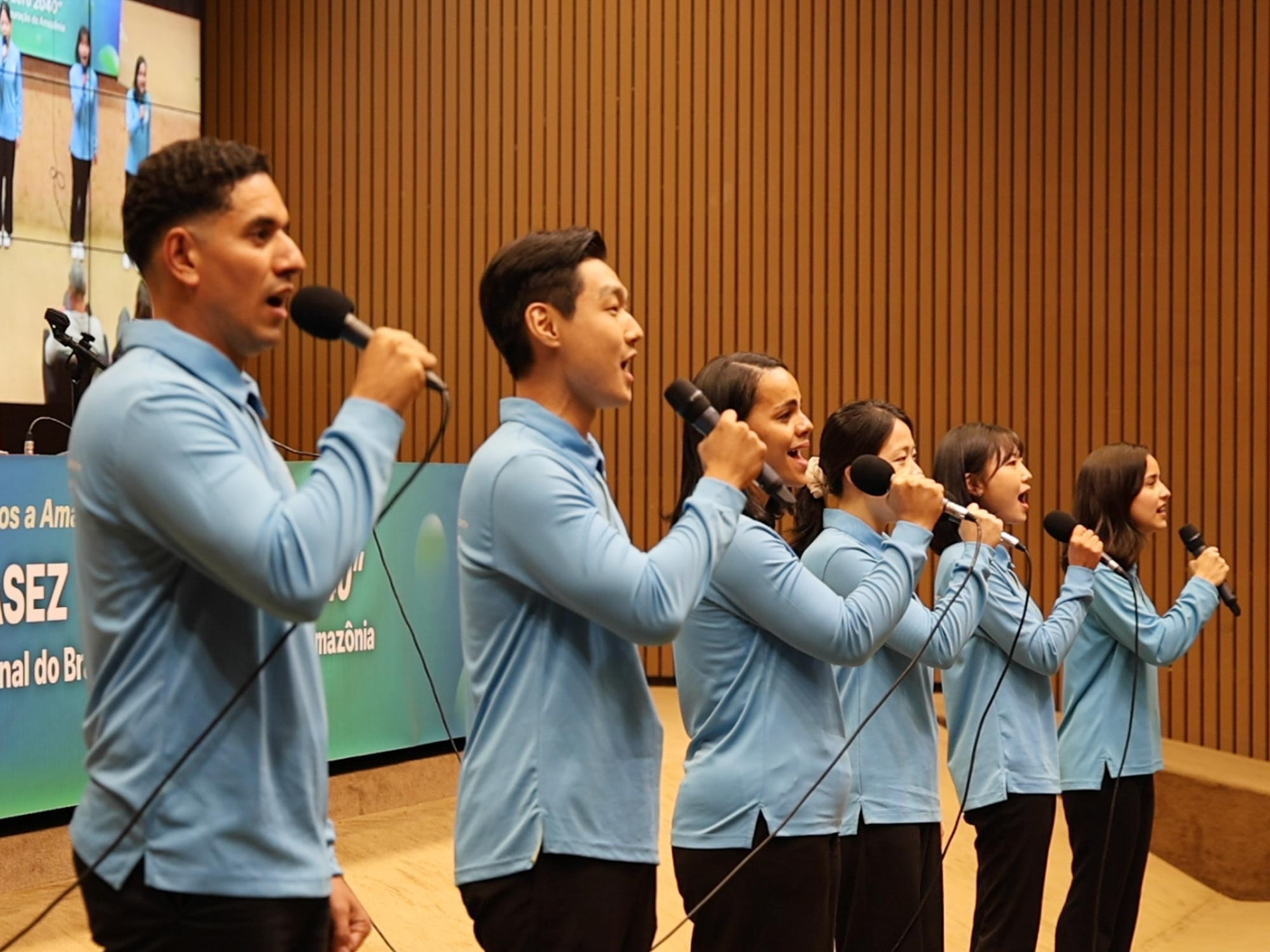
In the opening address, the ASEZ Brazil chapter representative explained the purpose of the forum, saying, “We have gathered to reduce plastic pollution, restore the Amazon, and create a healthier and more peaceful tomorrow.” He pointed out that municipal waste from river basin cities, as well as packaging materials, fishing gear, and illegal dumping from various sectors, accumulate along waterways and affect not only Brazil but also neighboring countries such as Peru and Colombia. He went on to explain ASEZ’s vision of seeking the root of the problem not only in systems or technology, but also in everyone’s awareness, choices, and daily habits—emphasizing that “the change of one person” can transform the culture of a community and lead to shifts in local systems. He added that ASEZ has earned international trust, expanding its cooperation with governments and public institutions through a total of 491 awards and 196 MOUs to date.
In his congratulatory remarks, Federal Deputy Reginaldo Veras expressed his gratitude for being able to work together with ASEZ youth in the National Congress to support Amazon restoration and discussions on sustainable development. Federal Deputy Nilto Tatto welcomed the fact that ASEZ youth activities carried out around the world are now expanding to Brazil as well, and he encouraged the university students who were present at the event.
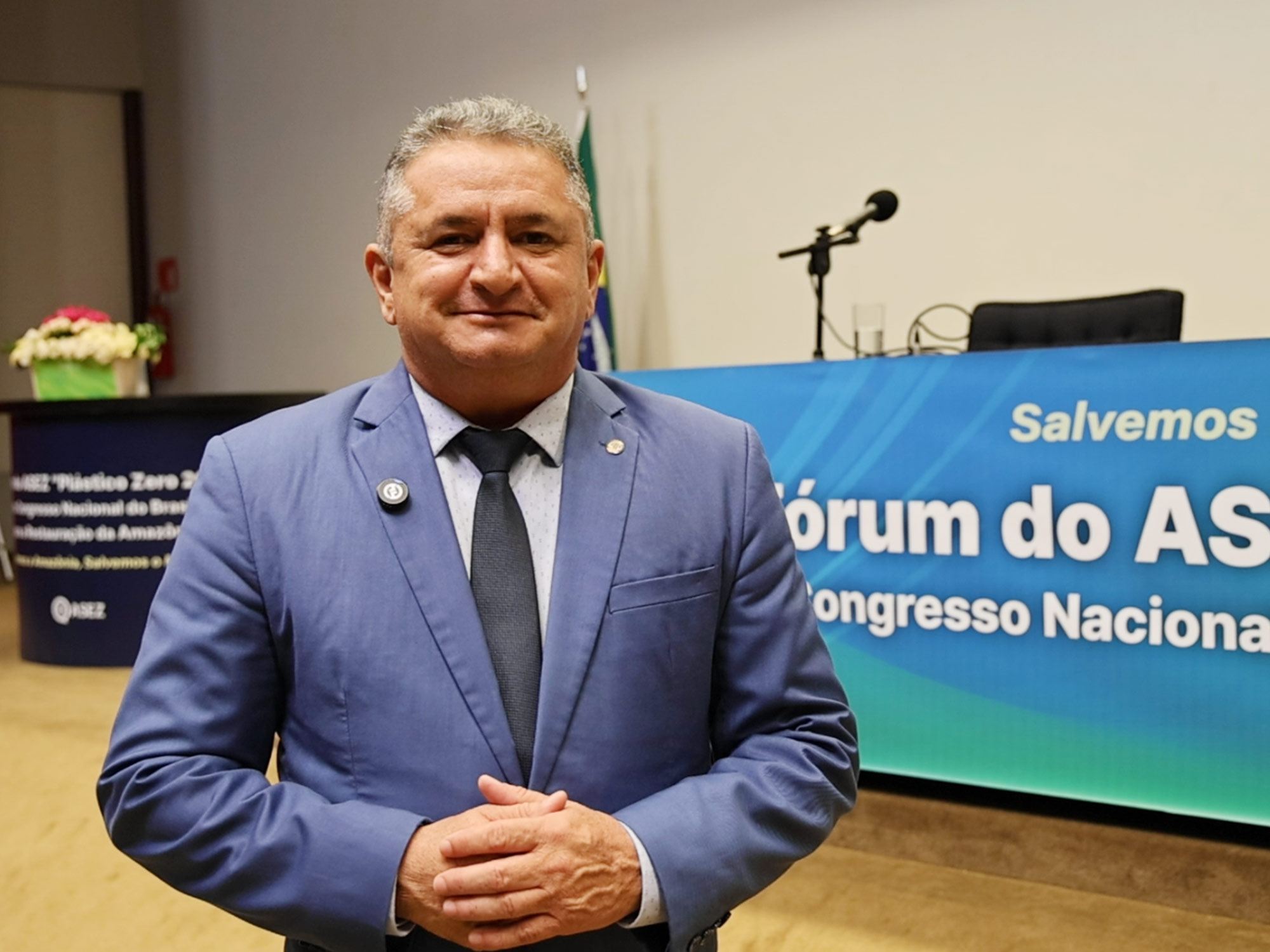
Although they were not able to attend in person, other Latin American leaders also expressed clear support for ASEZ’s activities. Waldemar Cerrón, Vice President of the Peruvian Congress, described the “Zero Plastic 2040” forum as a beacon of hope and emphasized that he hopes it will become a turning point for solidarity and cooperation in restoring the Amazon. Fanny Montellanos Carbajal, former Peruvian Minister of Women and Vulnerable Populations, said she was deeply inspired by the responsible actions of university students across Latin America, offering congratulatory remarks that their commitment to a pollution-free Amazon is a source of hope for the planet and a model for all.
In addition, Carlos Vilela del Carpio, Vice Minister of Women of Peru; Aido Felipe, Vice Chancellor of the Higher University of San Andrés in Bolivia; Professors Luis and Victor of the same university; and Octavio, a professor at Euroamericana University in Panama, sent video messages expressing their support and encouragement.
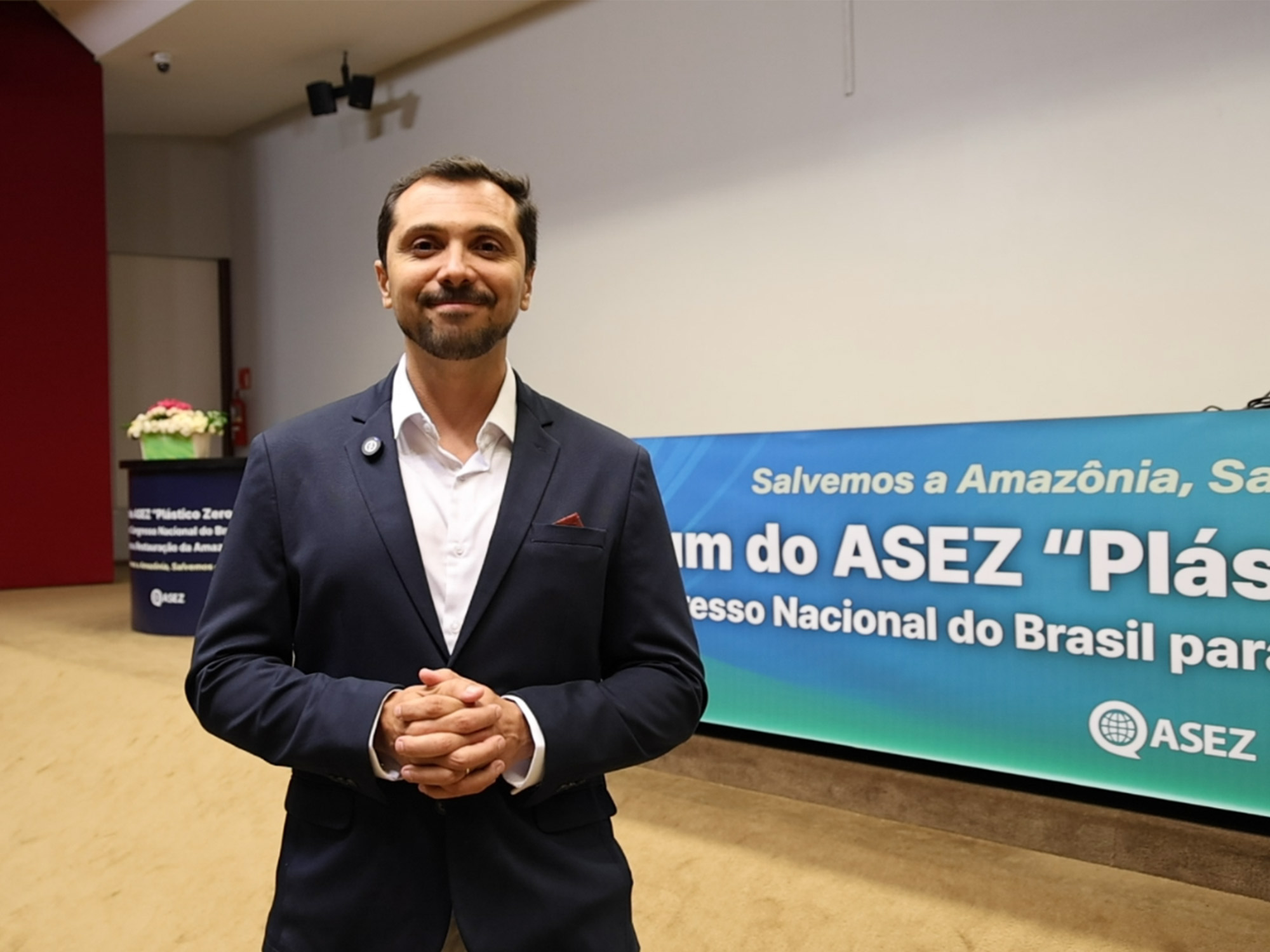
The forum’s keynote lecture was delivered by Professor José Henrique Camargo Pace of the University of Brasília. Under the theme “Our Youth, New Habits, a New World,” he examined the surge in consumption that followed industrialization and its resulting impacts. Highlighting the fact that “most plastics have never been recycled,” he suggested that we must mobilize policy frameworks and global initiatives to hasten the transition beyond the “plastic war” toward a bioeconomy. He emphasized the need to expand the use of biopolymers and bio-based materials through a balance between nature conservation and productive forests, calling for a practical strategy of “more paper, less plastic.”
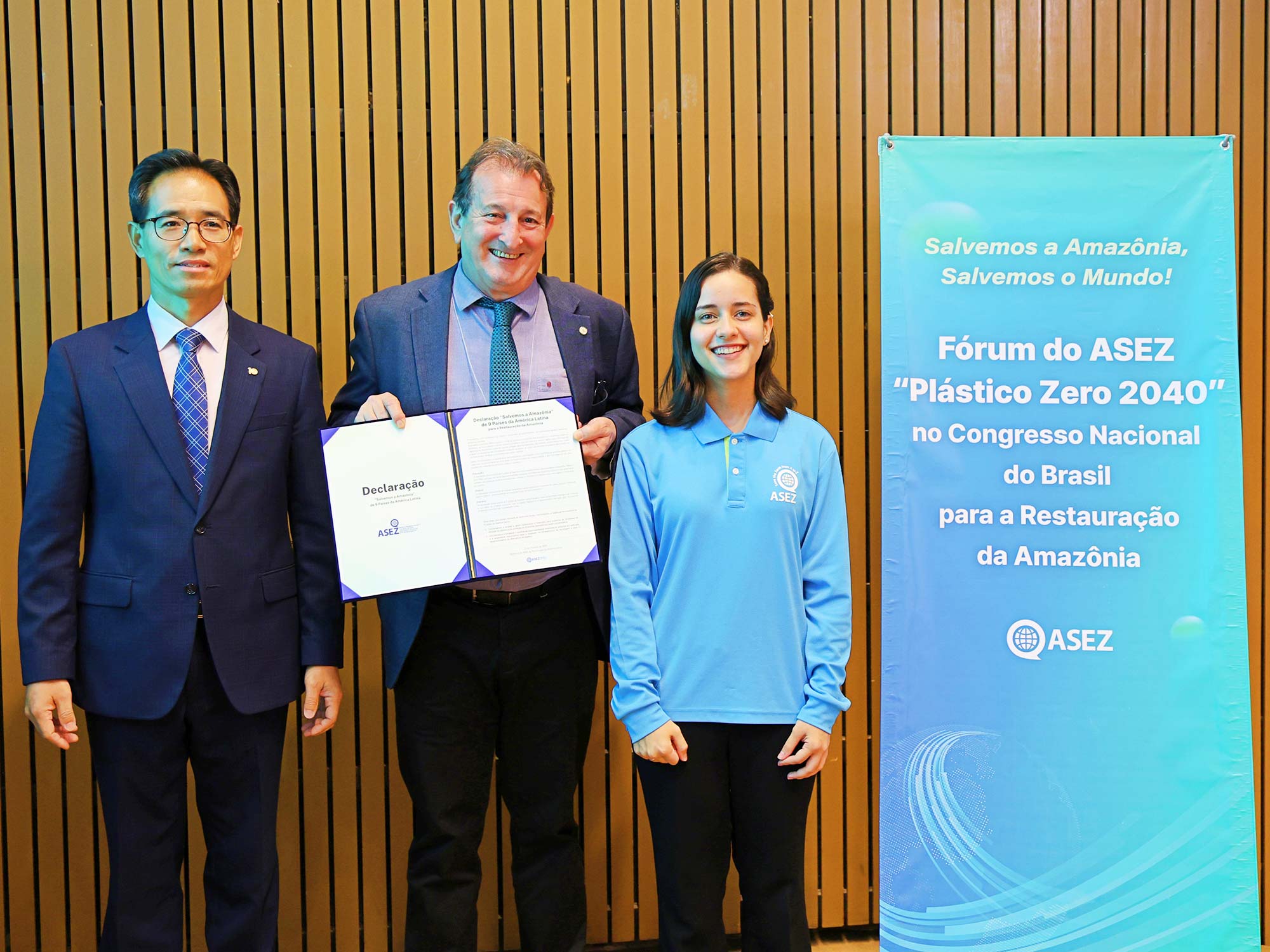
The presentation on activities across nine Latin American countries was delivered by Danyele Silva Durães Pacheco, an ASEZ member from the University of Brasília. He shared the outcomes of the “Zero Plastic” campaigns, forums, and seminars held over roughly three weeks from late September to early October on various campuses throughout the region. In Colombia and Uruguay, 196 participants joined the activities centered around San Viator International School and the University of Montevideo, with the school principal signing a letter of support. In Argentina, 1,515 people participated in campaigns in Buenos Aires, Córdoba, and other areas, and 1,370 of them signed in support. A provincial assemblyman from Córdoba, Argentina, commented that “these activities deserve to be more widely known.” She suggested that because plastic pollution in the Amazon basin spreads across borders along river systems, countries must work together to reinforce laws, policies, and monitoring systems across all stages of production, distribution, consumption, and waste disposal.
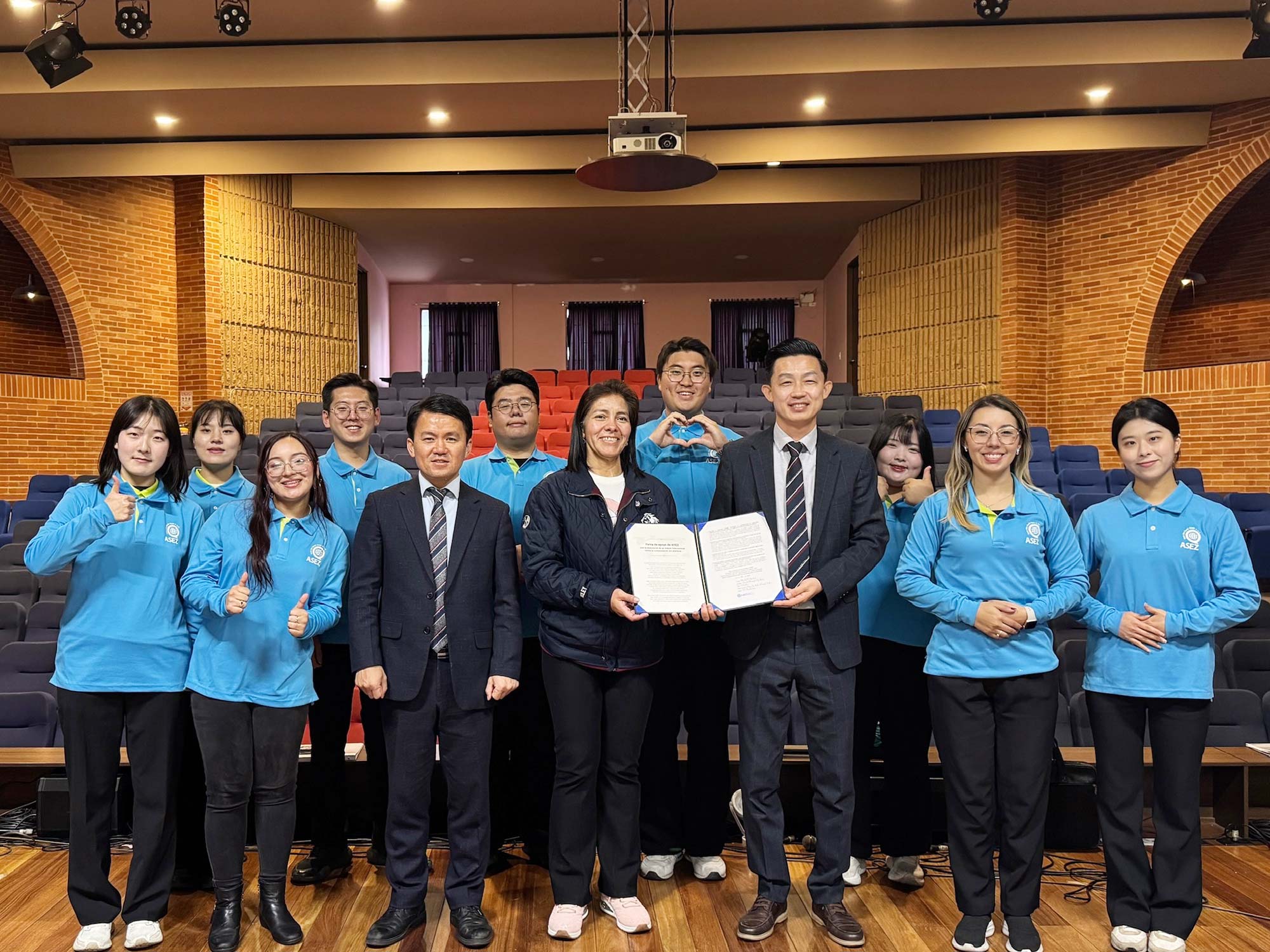
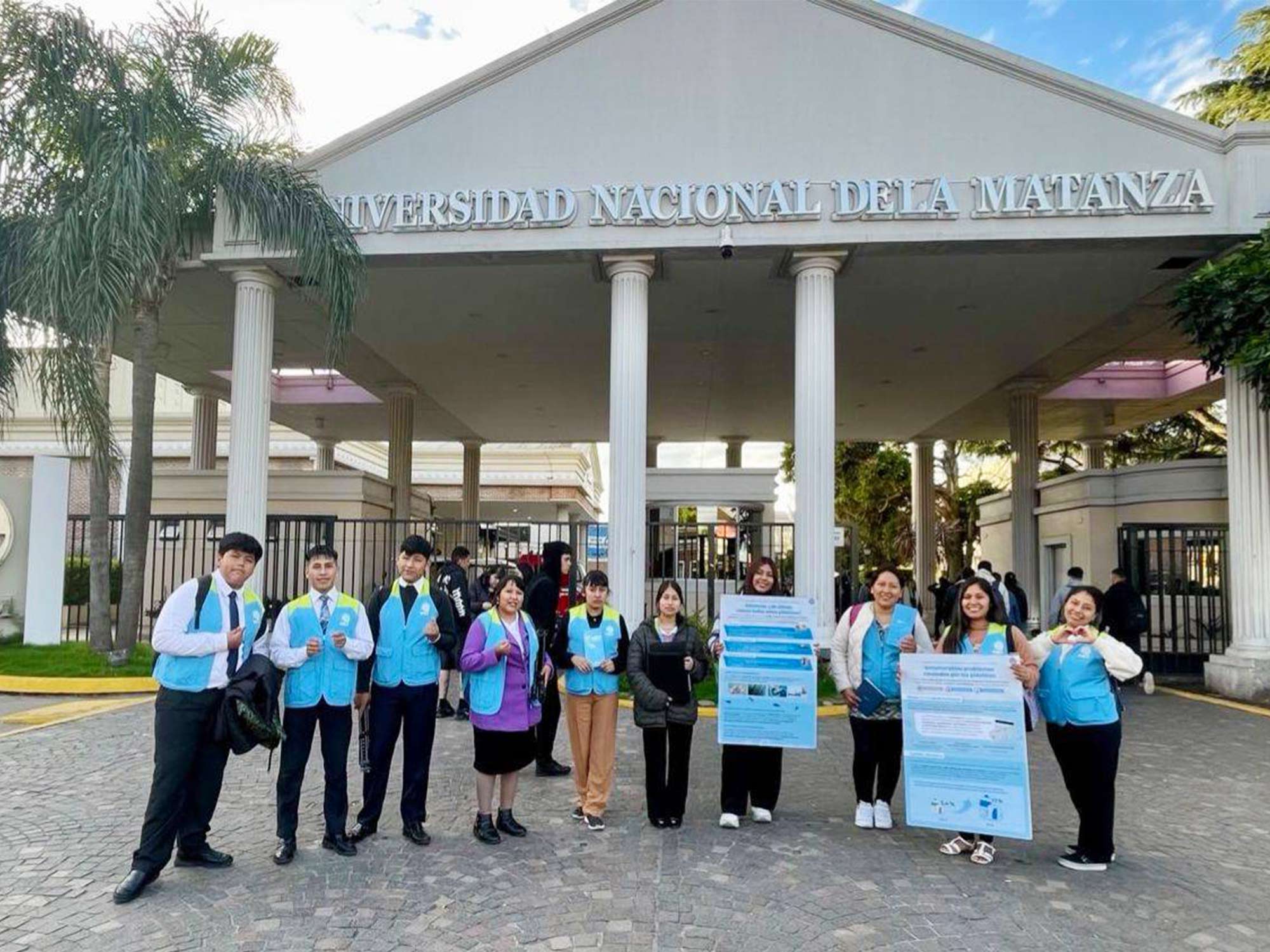
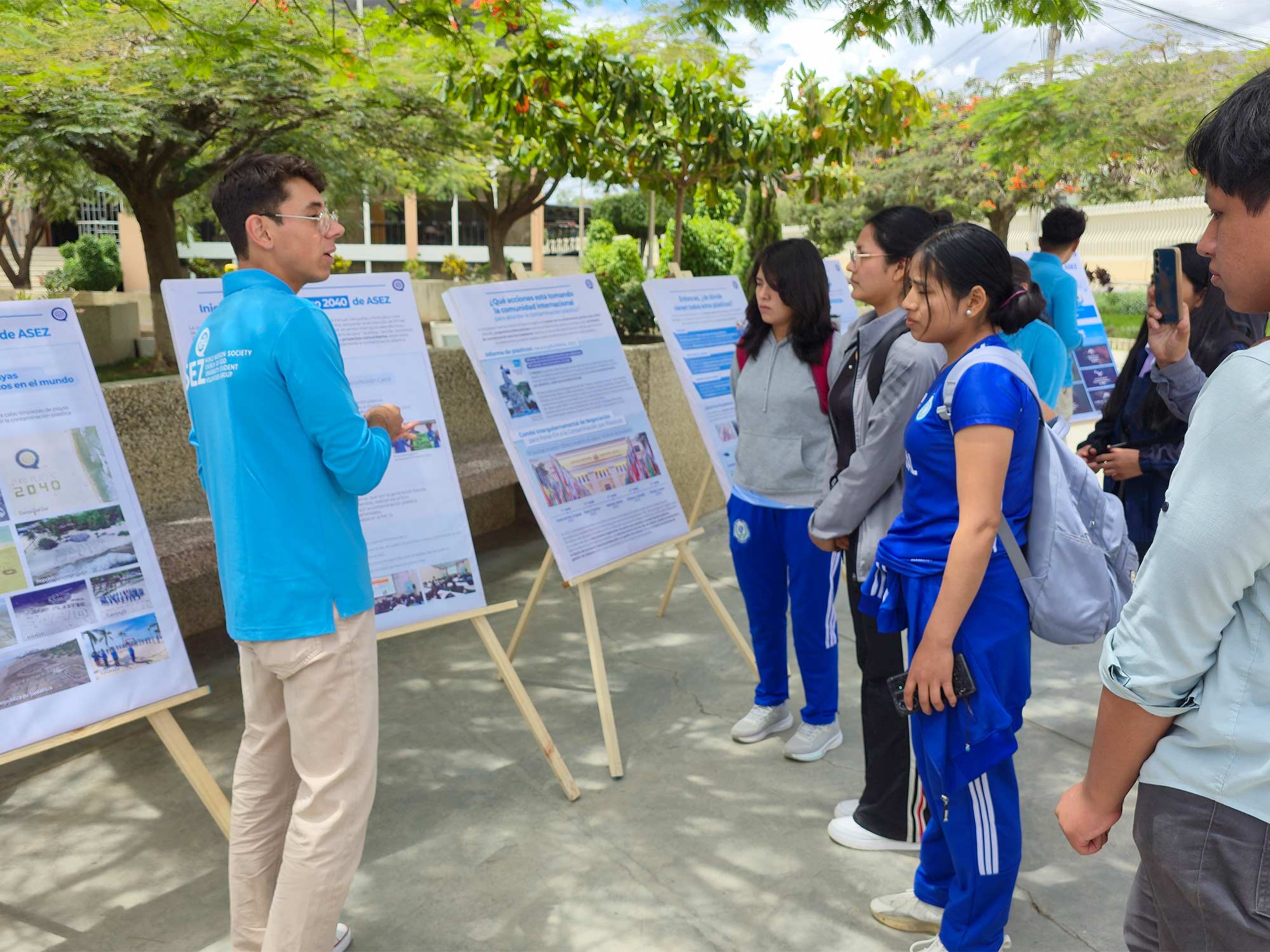
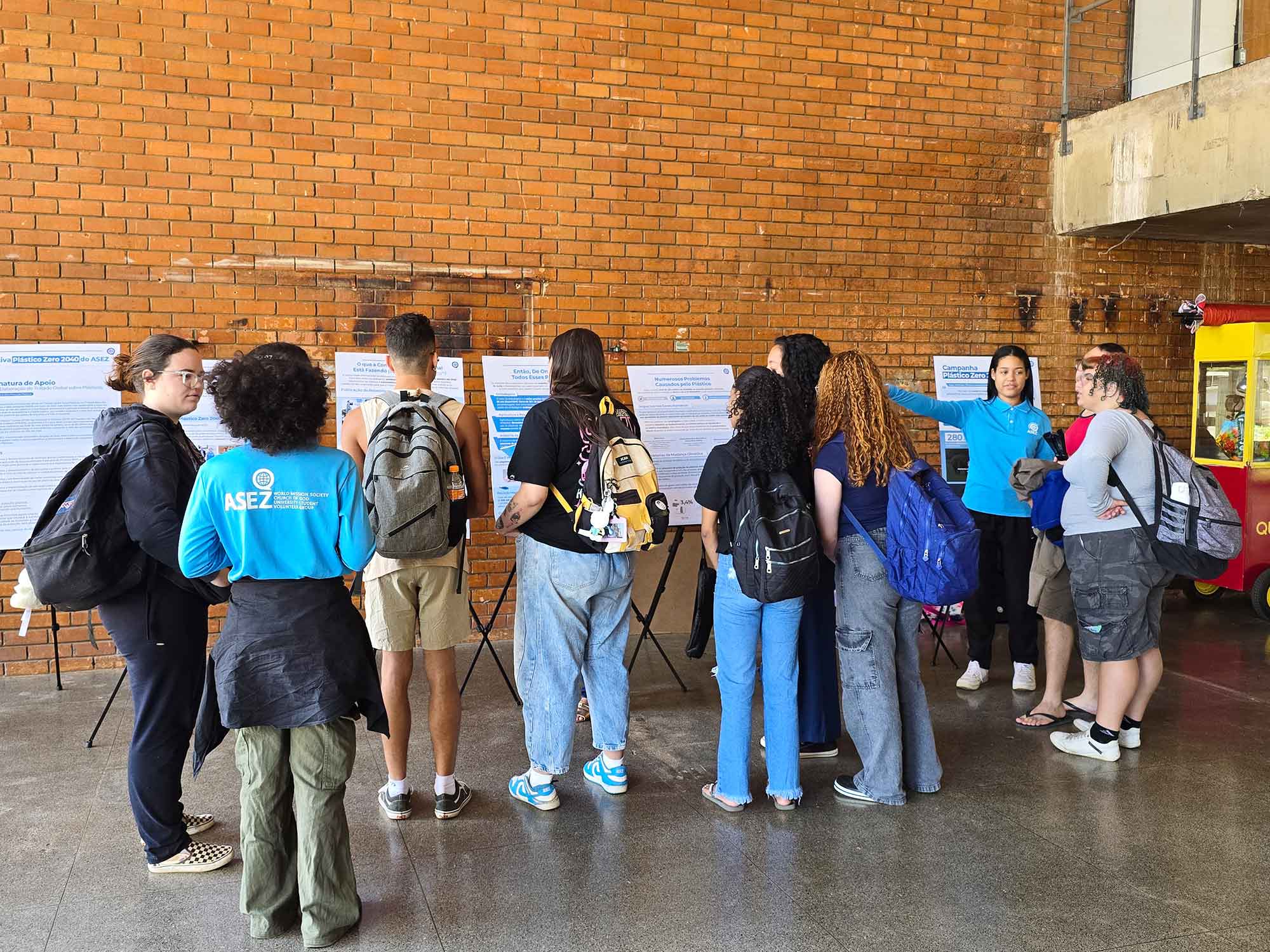
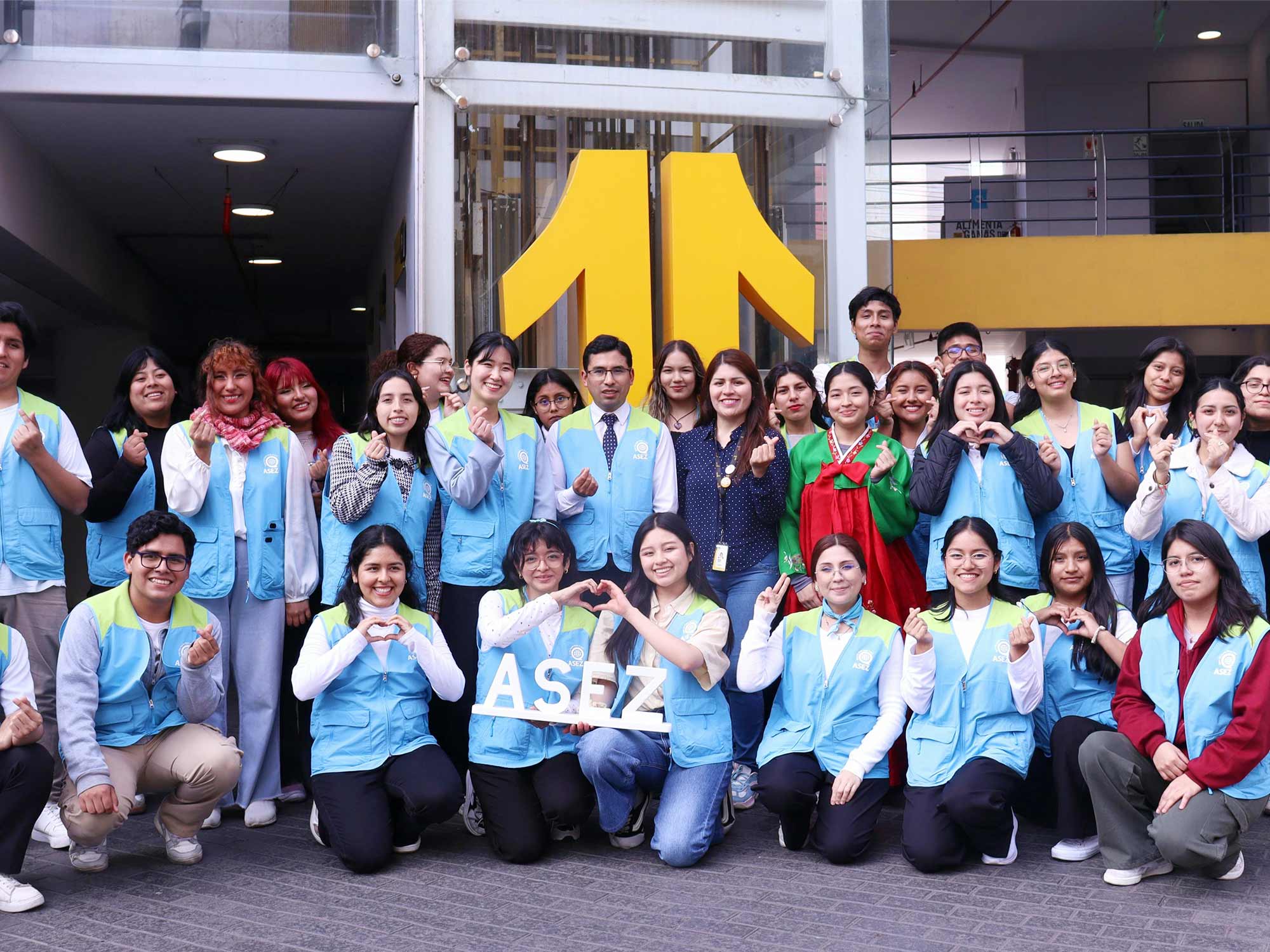
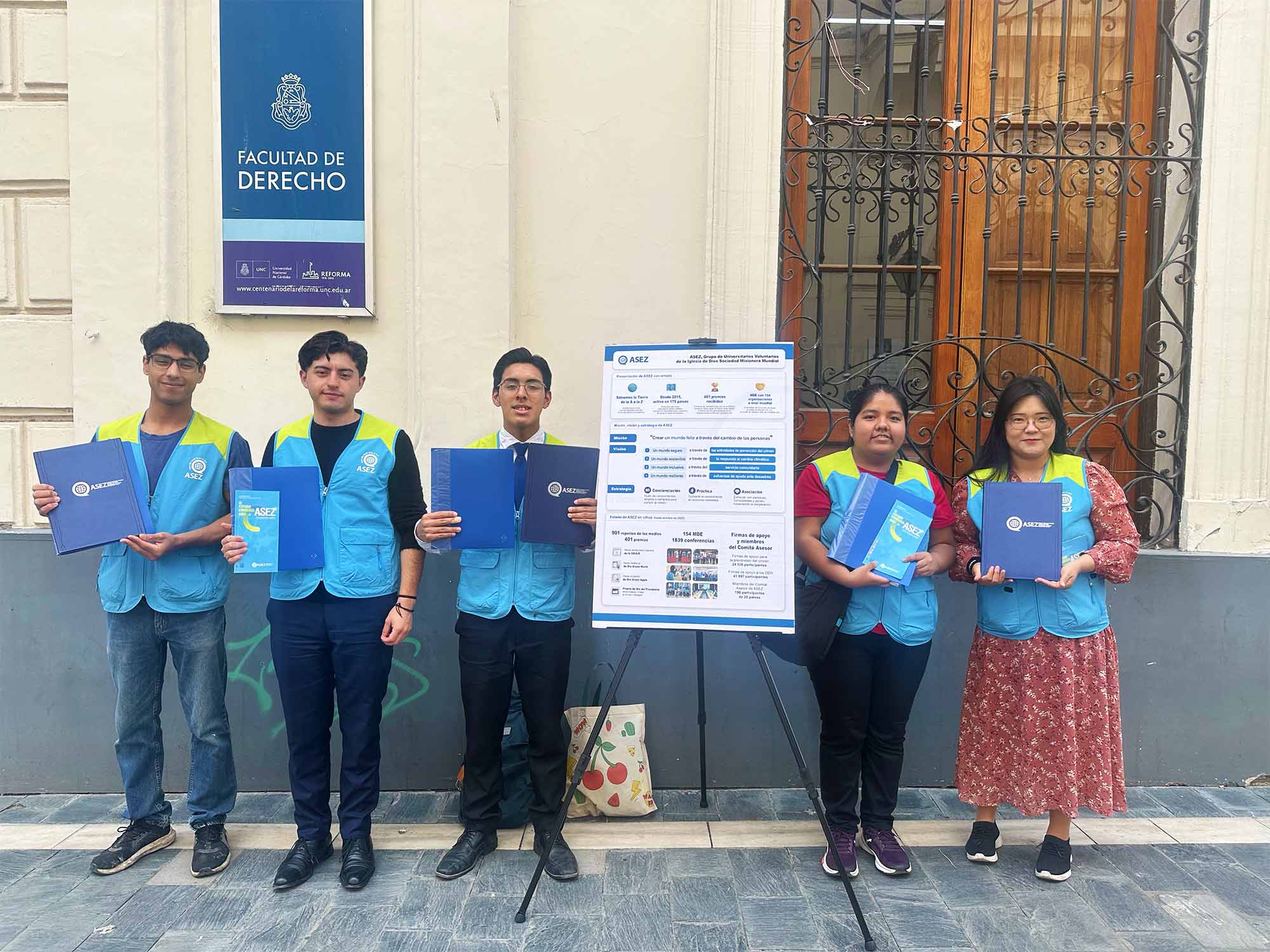
Midway through the forum, a delegation of university students from nine Latin American countries read a joint statement titled “Save the Amazon.” This was followed by a presentation from Anaméllia De Souza Jesus, a researcher at the Mamirauá Institute, who shared findings from her study showing microplastic fibers detected in the stomach of a Juruá red howler monkey within a protected area. She warned that pollution is being detected even deep inside forests where human access is extremely limited. The forum also introduced policy developments in Brazil, including the government’s adoption of a reverse-logistics system for plastic packaging in line with the PNFS (National Solid Waste Policy) and its ongoing efforts to pass legislation requiring 50% of packaging plastics to be recycled by 2040. These updates demonstrated the potential for on-site signatures and statements to contribute to real institutional changes.
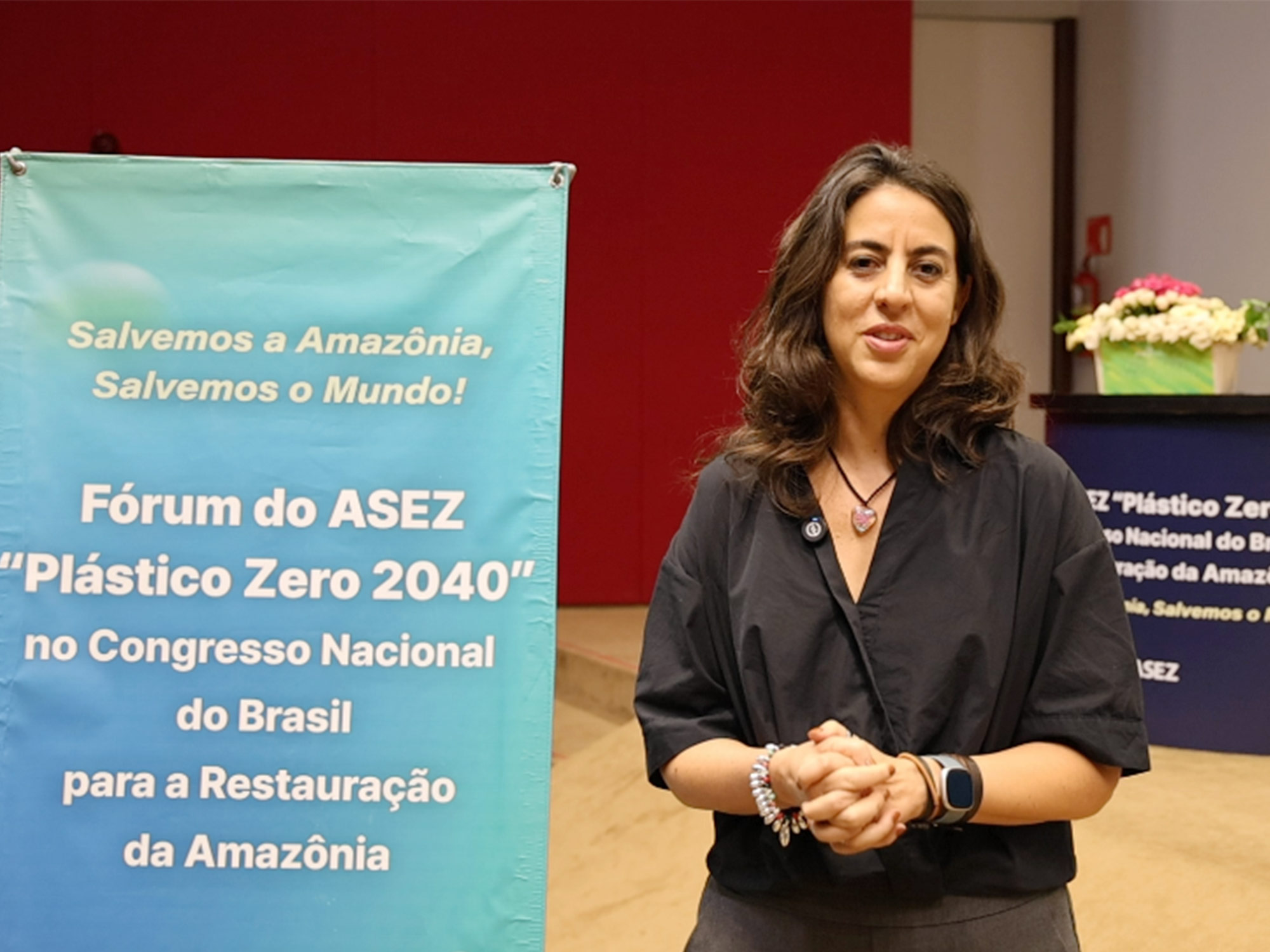
At the conclusion of the event, representatives from Congress and academia, along with the university students, all came up to the stage for a commemorative photo. By taking the photo together, they once again underscored ASEZ’s identity as “change-makers who create transformation through action, not words.” The data, case studies, and lawmakers’ signatures presented at this forum are expected to accelerate internal discussions within the National Congress and lay the foundation for expanding a practical model of action that connects university campuses, local governments, and the federal legislature. With this forum as a turning point, the solidarity among ASEZ university students across nine Latin American countries—and their shared journey toward restoring the Amazon—is anticipated to advance with even greater strength.
